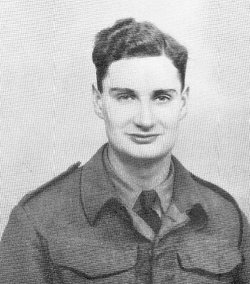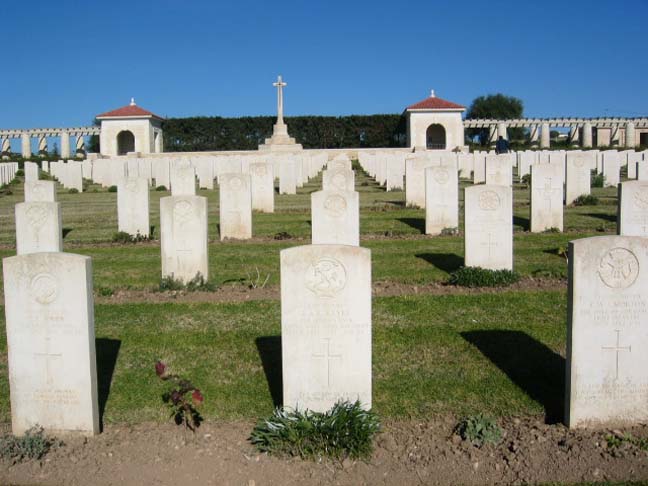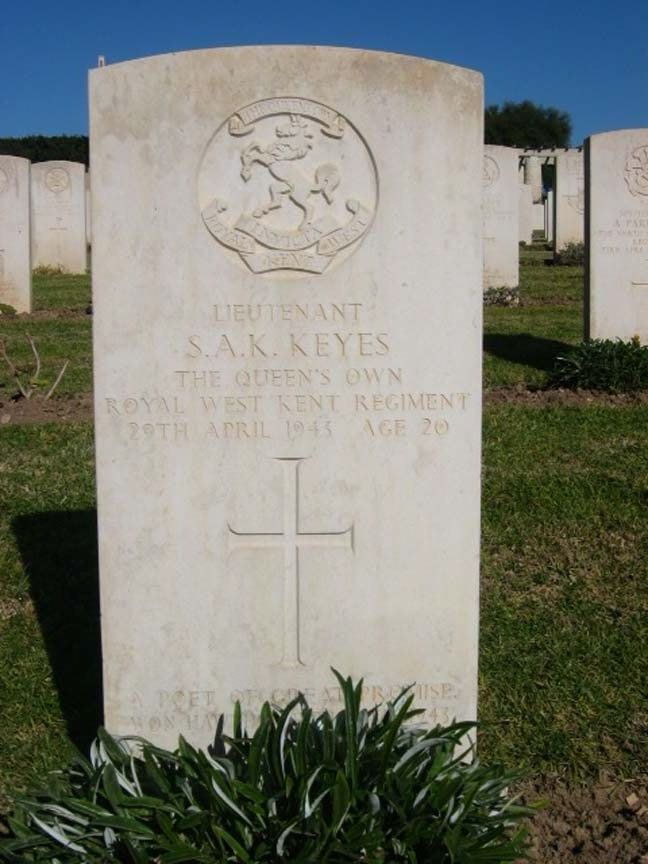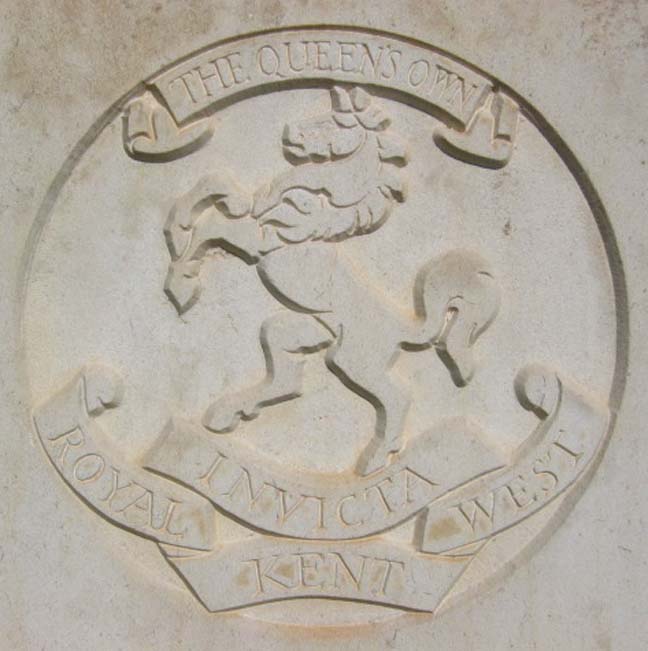In April 1942, he joined the British Army at Omagh in County Tyrone; and, in September that year, he received a Commission in the Queen's Own Royal West Kent Regiment. The following March, he left for North Africa, but was to see only a fortnight's active service. On the night of the April 28 and 29, Lieutenant Keyes and C Company launched an attack upon ground to the North of Peter's Corner, on the road between Oued Zarga and Tunis. They advanced up the slope of a hill and were ordered to dig trenches and await the counter-attack. This came just after first light. Until recently, it was thought that Keyes had been wounded and taken prisoner and then died whilst in captivity, but it now appears that he was last seen firing a Tommy Gun at the approaching Germans and had fallen in action.
The foot of his gravestone bears the inscription: "A poet of great promise. Won Hawthornden Prize in 1943." This is the oldest of the major British literary awards, and is presented annually for "the best work of imaginative literature." Lieutenant Keyes's Collected Poems were published in 1945 and were re-issued in 2002, along with a memoir by James Lucas, who had served as a Private in the same platoon. This concludes: "During my Army service, I had a number of platoon commanders. Keyes was the best of them. His manners were impeccable and he did not talk down to us, nor was he condescending. He was a gallant, Christian gentleman who sacrificed himself for the men under his command."
In April 1942, he joined the British Army at Omagh in County Tyrone; and, in September that year, he received a Commission in the Queen's Own Royal West Kent Regiment. The following March, he left for North Africa, but was to see only a fortnight's active service. On the night of the April 28 and 29, Lieutenant Keyes and C Company launched an attack upon ground to the North of Peter's Corner, on the road between Oued Zarga and Tunis. They advanced up the slope of a hill and were ordered to dig trenches and await the counter-attack. This came just after first light. Until recently, it was thought that Keyes had been wounded and taken prisoner and then died whilst in captivity, but it now appears that he was last seen firing a Tommy Gun at the approaching Germans and had fallen in action.
The foot of his gravestone bears the inscription: "A poet of great promise. Won Hawthornden Prize in 1943." This is the oldest of the major British literary awards, and is presented annually for "the best work of imaginative literature." Lieutenant Keyes's Collected Poems were published in 1945 and were re-issued in 2002, along with a memoir by James Lucas, who had served as a Private in the same platoon. This concludes: "During my Army service, I had a number of platoon commanders. Keyes was the best of them. His manners were impeccable and he did not talk down to us, nor was he condescending. He was a gallant, Christian gentleman who sacrificed himself for the men under his command."
Bio by: Iain MacFarlaine
Inscription
Lieutenant S A K Keyes The Queen's Own Royal West Kent Regiment
29th April 1943 Age 20
A Poet of Great Promise. Won Hawthornden Prize in 1943.
Family Members
Advertisement
See more Keyes memorials in:
Explore more
Sponsored by Ancestry
Advertisement







